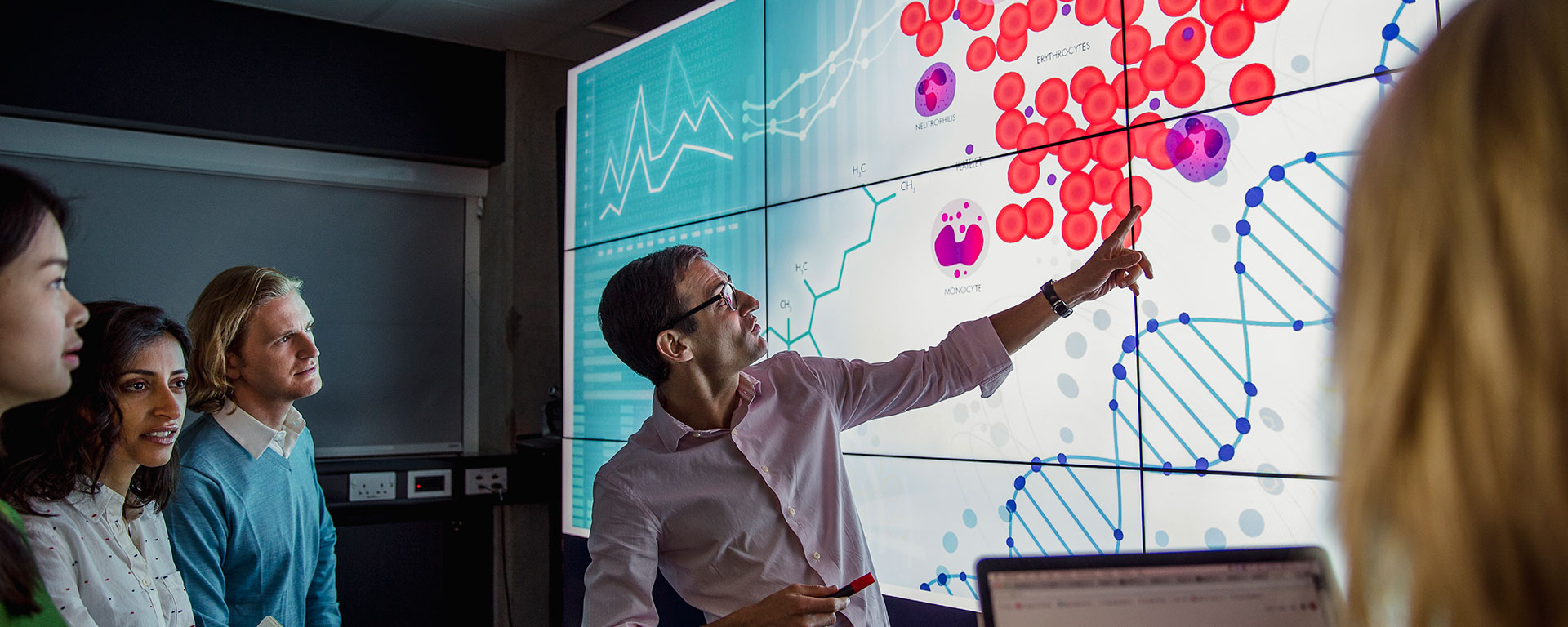The Greatest Guide To Bioinformatics Tutor
The Greatest Guide To Bioinformatics Tutor
Blog Article
Bioinformatics Tutor Can Be Fun For Anyone
Table of ContentsThe Single Strategy To Use For Bioinformatics TutorTop Guidelines Of Bioinformatics TutorFacts About Bioinformatics Tutor RevealedThe Ultimate Guide To Bioinformatics TutorSome Known Factual Statements About Bioinformatics Tutor
Of the total participants associated with the training, 80% were trainees from public greater education and learning establishments, while the remaining 20% came from personal institutions. To receive a certificate of involvement, students were called for to participate in at the very least 90% of the total training hours. As a result of this need, an impressive 95% of the individuals efficiently obtained their certifications, having not only met the minimum participation requirements but also finished all appointed tasks throughout the training.
Throughout the height of the COVID-19 pandemic, particularly between June and August 2020, the task team was charged with arranging specialized training in bioinformatics. This training was especially focused on students from the research group Core for Research in Applied Computing at the Federal University of Pará (UFRA) The adjustment to remote discovering platforms due to the pandemic produced a chance to explore new teaching techniques and digital devices that improved both reach and effectiveness.
This training course was made to give an easily accessible yet extensive review of Artificial Intelligence strategies, especially as applied in bioinformatics (Bioinformatics Tutor). This online style enabled involvement from pupils across Brazil, many of whom may not have had the opportunity to participate in in-person sessions.
Fascination About Bioinformatics Tutor
Approximately 50% of the total training hours were dedicated to useful tasks where pupils constructed intelligent versions and applications in a range of scientific domains, consisting of genetics, molecular biology, and environmental data evaluation. These platforms enabled students to engage in real-time information control, version training, and algorithm experimentation.
The course drew in 80 individuals in total amount. Sixty of them were affiliated with different college organizations in the state of Pará, while the continuing to be twenty came from organizations situated in 5 various other Brazilian states. This broad geographical representation highlighted the national interest in bioinformatics and the expanding need for specialized skills around. By introducing Expert system in a useful and relevant context, the initiative served to connect the space between theory and real-world application, providing students with a solid foundation for future study or employment in the area.
The training campaign created part of a broader academic outreach initiative referred to as the Bioinformatics when driving project. This task has, throughout the years, introduced loads of pupils to the globe of bioinformatics and computational biology. The events go to my site held under this umbrella effort have happened throughout several areas and years, as summarized in Table 1 (List of occasions, locations, years, and complete varieties of trainees and teachers)
Several of these teams, at first brought together by their engagement in training events, have actually since gone on to generate independent clinical research in cooperation with local scholastic institutions. The training not only promoted clinical reasoning within the context of bioinformatics yet also stimulated joint partnerships that prolonged beyond the training setting.
The Best Guide To Bioinformatics Tutor
The very same group, excluding IH and RR, also acted as tutors for the practical training components. Funding for the project was given via the grant 88887.200562/ 2018-00 from CAPES.
The Federal University of Pará's Office of Study (PROPESP/UFPA) likewise offered financial assistance, particularly for the manufacturing of the last manuscript. The writers state no economic or industrial problems of rate of interest that can have affected the research. All analyses and viewpoints shared in this write-up are solely those of the authors and do not necessarily show those of their respective establishments, the publisher, editors, or reviewers involved in the magazine procedure.

The 30-Second Trick For Bioinformatics Tutor
From a pedagogical point of view, the training technique used in the training was purposefully interactive. Classes were performed in a fashion that urged student engagement and discussion, surpassing rote memorization to check out just how ideas are developed, used in daily life, and tested in visit site scholastic setups. The training approach concentrated on nurturing both strong and battling students, supplying personalized support, and building confidence through sustained mentorship and perseverance.

Each group, being these details composed of about 36 individuals, was sustained by 3 advisors-- the majority of whom were postdoctoral researchers with specific knowledge. These mentors not just assisted develop the team tasks yet likewise promoted their execution, ensuring that each study inquiry was both appropriately tough and appropriate. The objective was to provide a naturally practical context that individuals could check out through flexible goals and accessibility to curated datasets.
For additional insights into the method and results of this project-based understanding strategy, visitors are directed to S1 Text, which consists of in-depth summaries of the pedagogical structure, assessment approaches, and job motifs utilized in the training sessions.
Our Bioinformatics Tutor Statements
Of the total amount individuals included in the training, 80% were pupils from public greater education institutions, while the continuing to be 20% came from personal institutions. To qualify for a certification of involvement, pupils were needed to attend at least 90% of the complete training hours. Significantly, beyond the trainees that signed up in the training sessions, 7 skilled instructors got involved in providing the programs, while 3 committed study teachers collaborated the general training procedure. Around 50% of the total training hours were committed to sensible activities where trainees built intelligent models and applications in a range of scientific domains, including genetics, molecular biology, and ecological data evaluation. The training not only fostered scientific thinking within the context of bioinformatics but also sparked collaborative relationships that prolonged past the training environment.
Report this page